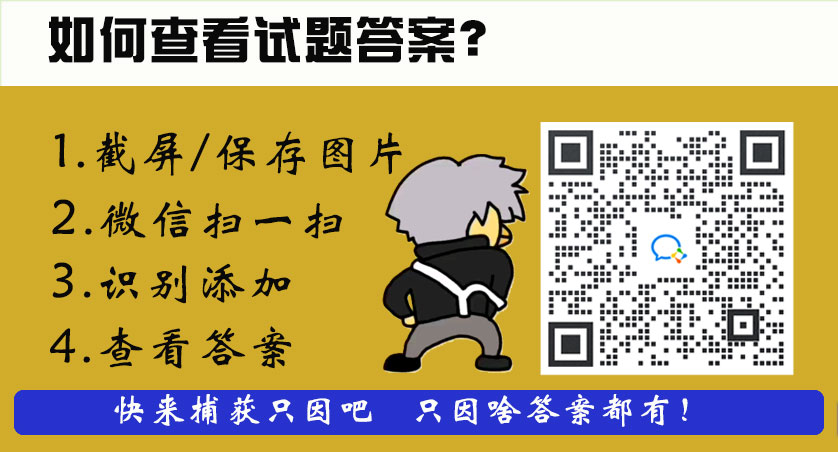英语双语报2022~2023,我们目前整理分享关于英语双语报2022~2023及其参考答案,2如需答案 请关注微信公众号:考不凡/直接访问www.kaobufan.com(考不凡)

1、英语双语报2022~2023
2、英语周报八年级下2022答案
3、双语学习报2022-2023高三新高考
20.What is"Walk to School"?
Now we are working on a programme of"Walk to School".We would like as many parents and children as possible to take part,even if in a small way.Children who walk to and from school along with their parents can learn essential (基本的) road safety and life skills.
You can take part by…
■Walking to and from school with your child every day.
■Walking for one or two days during the week.
■Encouraging others to walk,if you already do.
Walking is great!
■Walking is great exercise!A walk is good for your body and can keep you fit.
■You won't have to waste time looking for a parking site (停车点).
■It's free.You'll save money by not using the car.
■It's pollution free.
■It's a good chance to talk to your children and to meet other parents,too.
Enjoying walking to school!
Here are some suggestions to help you and your child enjoy walking to school.
■Plan a safe route (路线) together.
■Teach children what a kerb (马路牙子) is and what it means.
■Encourage your child to help you choose the safest places to cross the road.
■Look at and discuss the things you see on your way-especially road signs and what they mean.
Walk to school!Thousands of parents and children already take part,could you?
Please go to www.walktoschool.org.uk for more information.
41.Who are encouraged to take part in the programme of"Walk to School"?B
A.Children.
B.Parents and children.
C.Bus drivers.
D.Teachers.
42.By walking to and from school,children can learnC.
A.driving skills
B.running skills
C.road safety and life skills
D.knowledge about science
43.Which is NOT the benefit of walking to school?D
A.It can keep you fit.
B.It can save money.
C.It won't pollute the air.
D.It can keep the friendship between you and your friends.
44.What is the first thing to do if you want to enjoy your walking to school?A
A.Plan a safe route with your children.
B.Learn what a kerb is and its meaning.
C.Choose the safest places to cross the road.
D.Find road signs and know their meanings.
45.According to the writer,you can learn more about"Walk to School"byC.
A.reading a newspaper B.making a phone call
C.going to the Internet D.having a traffic lesson. 试题答案
分析 本文叙述了步行上下学的好处以及让孩子喜欢步行上学的方法.孩子们通过步行上下学可以学到交通安全的基本知识和生活技能.可知想让你和你的孩子喜欢步行上学的第一件事是:在一起计划一条安全的路线.你要想了解更多关于步行上学的信息,可以上网到www.walktoschool.org.uk网站上查询.
解答 BCDAC
41 B 细节理解题.根据文章内容We would like as many parents and children as possible to take part,even if in a small way.Children who walk to and from school along with their parents can learn essential(基本的) road safety and life skills.可知父母和孩子被鼓励参加这个节目,答案为B
42 C 根据 who walk to and from school along with their parents can learn essential(基本的)road safety and life skills.可知孩子们通过步行上下学可以学到交通安全的基本知识和生活技能.故选C.43 D 细节理解题.根据文章Walking is great exercise!A walk is good for your body and can keep you fit.It's free.You'll save money by not using the car.It's pollution free.ABC三项符合文意,文章并没有提到保持你和朋友的友谊,故选D.
44 细节理解题.根据Here is some advice to help you and your child enjoy walking to school.■Plan a safe route(路线)together.可知想让你和你的孩子喜欢步行上学的第一件事是:在一起计划一条安全的路线.故选A.
45 细节理解题.根据Please go to www.walktoschool.org.uk for more information.可知要想了解更多关于步行上学的信息,可以上网到www.walktoschool.org.uk网站上查询.故选C.
点评 做阅读理解时要快速的浏览全文,把握文章主旨大意,带着问题回到原文,寻找细节或概括相应的答案,最后要理清作者写作思路.
阅读理解。
How many times do you check your Moments or Facebook page in a day to see whether your latest post has got another “like” or “thumbs up”?
Although you might be embarrassed to admit how many times you do this, don’t worry. Psychological findings have shown it’s completely normal.
In fact, the pleasure we derive from (取自) getting a “like” is equal to that of eating chocolate or winning money, and we can’t help wanting more.
According to the findings of the UCLA Brain Mapping Center, which observed 32 teens aged between 13 and 18, the feedback circuit (反馈电路) in the teens’ brains are particularly sensitive, and the “social” and “visual” parts of their brains were activated when they received “likes” on a social network. The research also showed that though the thumbs up might come from complete strangers, the good they derive from it worked equally.
So does it mean we should try our best to win as many thumbs up as possible?
Not necessarily so if we know the reasons behind our desire for attention.
In “Why do people crave (渴望) attention” by M. Farouk Radwan, he explained several cases in which people naturally longed for attention. Radwan said people who were an only child, who were used to being the center of attention in their house, may try to reproduce these conditions. Feeling “overlooked and unappreciated” might also lead you to be eager for attention. Other times, the state of being jealous or wanting to cover your mistakes may also contribute to such longings.
In fact, too much desire for attention can create anxiety, and in turn ruin your happiness even when you get it. So what can we do about it? The answer is quite simple.
“If people could adopt goals not focused on their own self-esteem (自尊) but on something larger than their self, such as what they can create or contribute to others, they would be less sensitive to some of the negative effects of pursuing self-esteem,” wrote psychology professor Jennifer Crocker in the Journal of Social Issues.
1.You may find this text in a magazine about ____.
A. technology B. education
C. entertainment D. social life
2.Who will NOT naturally expect attention according to Radwan?
A. People who are living with their parents.
B. Those who lack social recognition.
C. People who are the focus of attention.
D. Those who want to blanket what they’ve done.
3.We know from the last paragraph that ____.
A. checking your Moments or Facebook page is a waste of time
B. it is helpful to set goals concerning making contributions
C. focusing on one’s self-esteem is quite natural
D. self-teem has a bad effect on one’s goals
4.What’s the author’s attitude towards people’s addiction to “thumbs up”?
A. worried. B. objective.
C. critical. D. supportive.